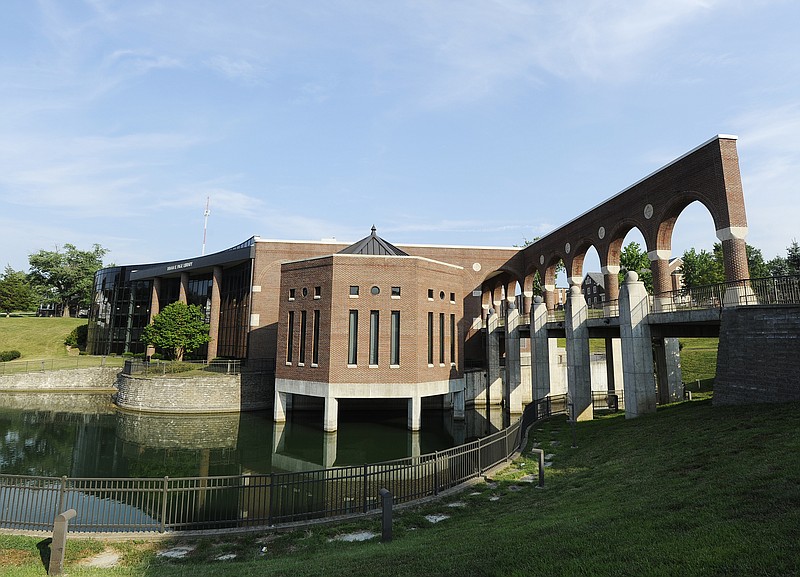After bringing three candidates to campus, Lincoln University is changing direction in its search for a new vice president for academic affairs and provost.
University President John Moseley is taking the lead on the search for the university’s new chief academic officer after the nearly year-long search spearheaded by the Board of Curators and an outside search firm was unsuccessful.
The vice president for academic affairs and provost is responsible for the university’s academic programming and working with deans to advance curriculum. The position also acts as the university’s leader in the event the president is away.
After a search committee narrowed applicants to five candidates, three were invited to campus in late March to meet with faculty, administration, staff and students.
“We understand just how important this hire is for setting the academic direction of the institution so we’re not going to settle,” Moseley said. “We believe that our students and our faculty and our staff deserve the absolute best and so we just didn’t feel that we were successful in that first round and so we continue the search.”
The university is largely back to the drawing board.
Curator Everidge Cade, who chaired the university’s search committees for president and vice president for academic affairs and provost, said the search is mostly in Moseley’s hands as work with Greenwood/Asher & Associates, the external search firm the university hired for around $130,000 last year, is complete.
“They brought us some candidates, we took a look at them and we chose not to select any,” Cade said. “I appreciate the work that they put in, but we’re going to take another approach.”
Cade said he thinks the outside search firm did what the university asked in identifying two pools of candidates for the president and provost positions, but “talent pools are just like the football draft — there aren’t that many first round draft choices of quarterbacks for next year.”
It’s not that the candidates were bad, Cade said, but the top candidates identified with Greenwood/Asher didn’t fit with Lincoln as an institution.
Cade said he still values the contributions Greenwood/Asher made to the search by doing the back-end work Lincoln doesn’t have the resources to do and providing expertise to adhere to state laws related to the process.
Moseley said the university’s next steps are to begin identifying more candidates and promoting the position to more people.
He said he’s hopeful his selection as president will make the process of finding a provost easier. Most universities don’t conduct simultaneous searches for their top two administrative positions, he noted.
Moseley said the university is evaluating whether it has the resources to conduct a search without hiring another outside firm, but most other higher education institutions in the state have relied on search firms to hire for similar positions.
“We don’t want to sell ourselves short,” he said. “It is an investment into a critical position at the university.”
Moseley said he wants to cast a wider net than the previous search and wants to find candidates with previous experience serving as a provost or associate provost. That individual should also be able to communicate well with faculty, staff and students, he said.
Someone who understands the needs of a smaller campus and Lincoln’s academically and racially diverse population would do well in the position, he added.
Lincoln University is an open enrollment institution that accepts students who are prepared for college to varying degrees, he explained, but the provost should be able to advance the university’s mission of setting them all up for success. The provost should help bring Lincoln ahead of the curve, Moseley said, because too often, the university is reacting to changes in higher education.
“This position is truly a significant role on our leadership team and on our campus,” Moseley said. “So we just don’t want to find ourselves in a situation where we feel like we’re settling.”
Jennifer Benne began serving as an interim appointment in the position after the previous provost left the university almost a year ago. She will be moving to the role of dean of graduate and extended studies May 16, Moseley said.
He said there’s constant pressure to have a full administrative team at the university, but he wants to ensure there’s due diligence in selecting the next provost. There is not a timeline or goal for when someone should be in the position at this point, he said.
He said another round of on-campus interviews is not likely before the end of the school year next month, and it would probably be July or August before a selection is determined.
“The sooner the better, but we’re not going to rush through the process,” Moseley said. “We want to be satisfied with the outcome.”
Cade agreed and said he doesn’t want to settle for a new provost or rush the search process.
“We’ve had three presidents and three provosts in the last 10 years,” Cade said. “I’m looking for sustainability. I’m looking for somebody that’s going to be there for a little while and somebody that institutionally fits with what we need for Lincoln University. If it’s going to take a little more time, it’s worth it.”
Lincoln has a few other open administrative positions, including its director of human resources and director of marketing and university relations. An interim appointment is overseeing enrollment management as the university’s director of admissions position remains open. Sandy Koetting, vice president for administration and finance, is retiring in June. Her replacement has been hired and will start May 1.

